“Fair Play” Writer/Director Chloe Domont Makes a Killing on Male Fragility
Fair Play, writer/director Chloe Domont‘s feature debut, is somehow both an old-school erotic thriller and a shrewd, scalpel-sharp dissection of how far we have and have not come with gender equality in the workplace and in the headspace of men, even those who consider themselves allies.
The film is largely set at the hedge fund One Crest Capitol, where Emily (Phoebe Dynevor) and Luke (Alden Ehrenreich) are low-level but promising analysts trying to take the next step in their careers. The vibes at One Crest Capitol are deeply dog-eat-dog, with the only trappings of a more enlightened age evidenced by a policy against intra-office romance. This is why Emily and Luke keep their engagement a secret, and all seems to be going to plan until one of the firm’s PMs (portfolio manager) is unceremoniously fired—he takes his rage out on a couple of computer monitors—and a promotion for Luke to fill the role seems nigh.
Only it’s the smarter, savvier Emily who gets the gig, turning the erotics depicted between the couple in the film’s early going into the thriller Fair Play becomes. While Luke plays at being both supportive and excited about Emily’s promotion, things between them go from tense to terrifying.
Domont explains how she crafted one of the finest erotic thrillers in years by setting out not to make a female revenge fantasy but rather an exploration of that most exquisitely fragile of constructs—the male ego.
Can you tell me about researching the hedge fund world?
I had a bunch of friends in that world, and they put me in touch with some hedge fund guys, and basically, it started with me taking them out for drinks and getting some of them drunk and asking basic questions, like, take me through your day from the moment you get up to the moment you go to bed. Even the mundane stuff. I wanted a full picture of what the day-to-day is like. Then, I asked about tensions and dynamics between an analyst and a PM. What are the most frustrating moments you’ve experienced with your superior? How do you treat someone who’s beneath you? Once I had a good grasp on it, I took a pass on writing a draft, then I shared it with them and got some notes on authenticity.
The finance jargon feels authentic, as does the poisoned relationships between all the men at One Crest Captial.
Actually, I felt like the finance jargon was the easy part; the harder part was, ‘Do I have a story that people will care about watching?’ [Laughs]. The harder part was crafting the drama and how the conflict would escalate and create this ballooning tension that you don’t know when it’s going to pop, but once it does, it turns into a dogfight. By far, the most challenging part of writing it was figuring out the pace, the tone, and the rhythm.
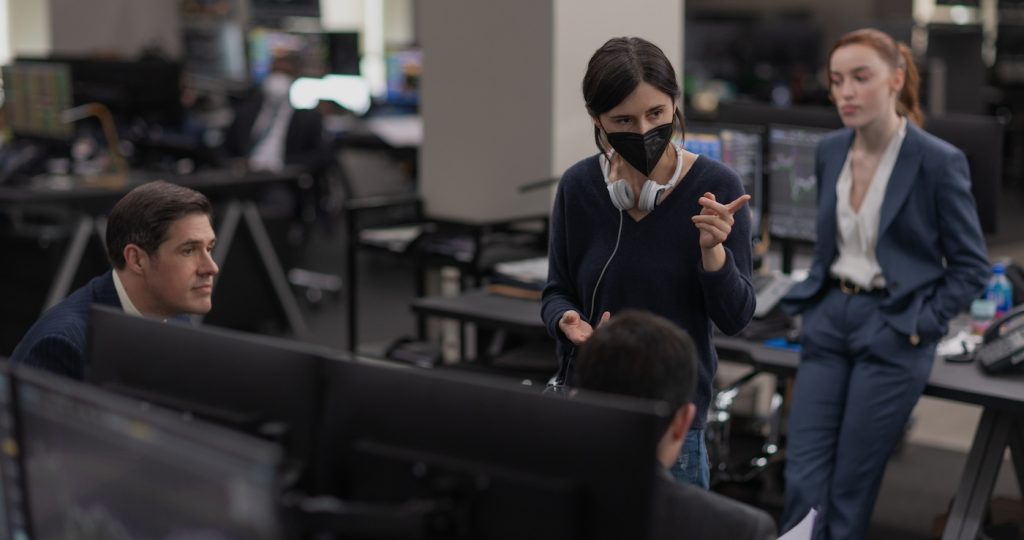
Was the pacing pretty well baked into the script, or did you find it while in the production and editing process?
Everything was pretty much there in the script. I even put camera directions in the script. I really worked on trying to fully realize every element of filmmaking before we went into shooting because I thought, this is my one shot, you know? Working in television was an amazing boot camp experience for me leading up to my first feature; you always have to cut shots, and you have to know what you have to protect at all costs and what you’re willing to sacrifice. But also, when you get on set, I think the most exciting thing about filmmaking is that you can rehearse it in a certain way and know exactly where your camera is going to be, but then the magic of filmmaking is something unexpected always comes up.
Your script is so tight that I’m sure there are lots of actors who could have done it justice, but I’m curious what you think about why they seemed so perfectly tailored to Alden Ehrenreich and Phoebe Dynevor.
Individually, they’re each such strong, versatile actors that I think they can do anything, but when you put two people together, the stars have to align. Their chemistry was just instant. The film really lives and dies off their chemistry. I remember early on, we’d rehearsed, and it felt electric in many ways, but until you get to shooting, you’re a little bit nervous if that chemistry is going to come through on camera. But I remember we shot the bathroom scene where they’re recently engaged, and they’re slow dancing, and the way they look at each other, it was just so magnetic. I knew at that moment that I had a movie.
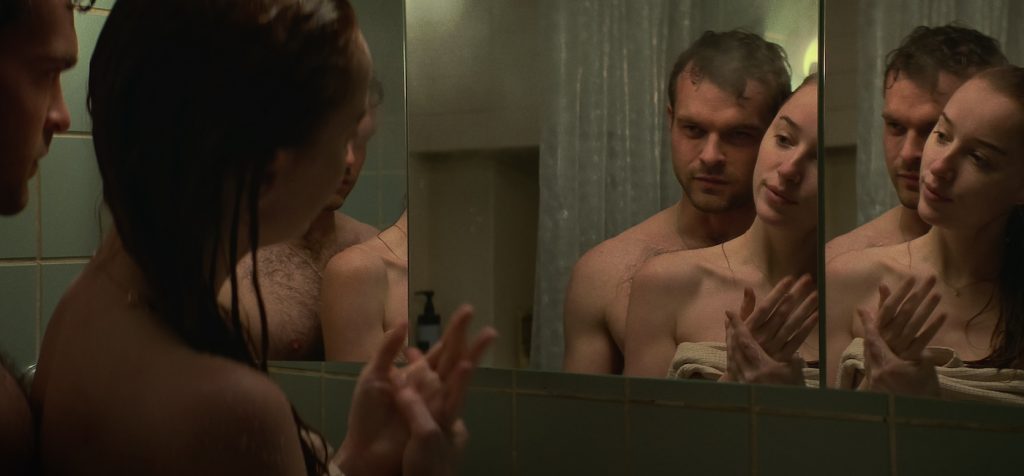
There are such subtle moments where Luke is trying to do right by Emily and applaud her promotion, but there’s this simmering resentment that we can feel growing inside him. How did you shape those?
What I tried to do with the character and what Alden brought to Luke is he represents a certain generation of men who are caught in the middle between wanting to adhere to a modern feminist society but still having been raised on traditional ideas of masculinity. That doesn’t make him a bad guy at all. He adores Emily because she’s ambitious. He adores her because she’s talented, because she’s a killer; that’s why he’s attracted to her. But at the same time, on some level, you know he was raised under more traditional ideas of gender roles. It’s that conflict that he starts to internalize and doesn’t know how to deal with, and that’s something I wanted to show—how problematic it becomes when someone doesn’t know how to deal with something. But, again, he genuinely is happy for her, but he’s hurt because he thought [the promotion] was his. He has this idea of who he’s supposed to be, the kind of man he’s supposed to become. This sudden flip throws him for a loop in a way he’s not prepared for. I think it’s tough for anyone to think you’re up for a job and your partner gets it, but then, what I’m exploring here are some of these ingrained power dynamics that I think we still haven’t quite figured out yet.
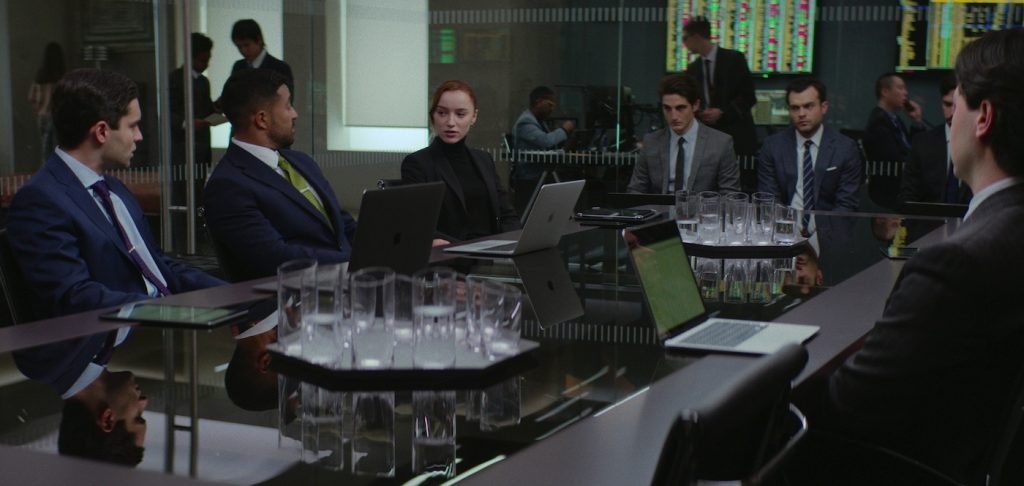
Your film is set in the aftermath of #MeToo in one of the most male-dominated, nakedly zero-sum capitalist professions. There’s one moment, in particular, when Eddie Marsan’s character Campbell, the big boss, savages Emily in a brutally sexist way that I was hoping you could unpack.
It’s an animal kingdom, you know? It’s every man for himself. I think the #MeToo movement never hit the finance world. There’s a certain level of power and money that you can’t touch. I think people definitely treat each other with more respect, but at the same time, what I wanted to show with Eddie’s character when he finally lashes out at Emily is that this is someone who hired her because he sees her value regardless of her gender and genuinely thinks she’s the best person for the job, and in that way, he’s her champion. But, as soon as she slips, then her failure is through the lens of gender. And I think that’s a double standard that a lot of women face in every industry. Yes, there are these male champions out there that believe in you and support you, but as soon as slip, you f**ked up because you’re a woman. I wanted to show that in the most cutting way.
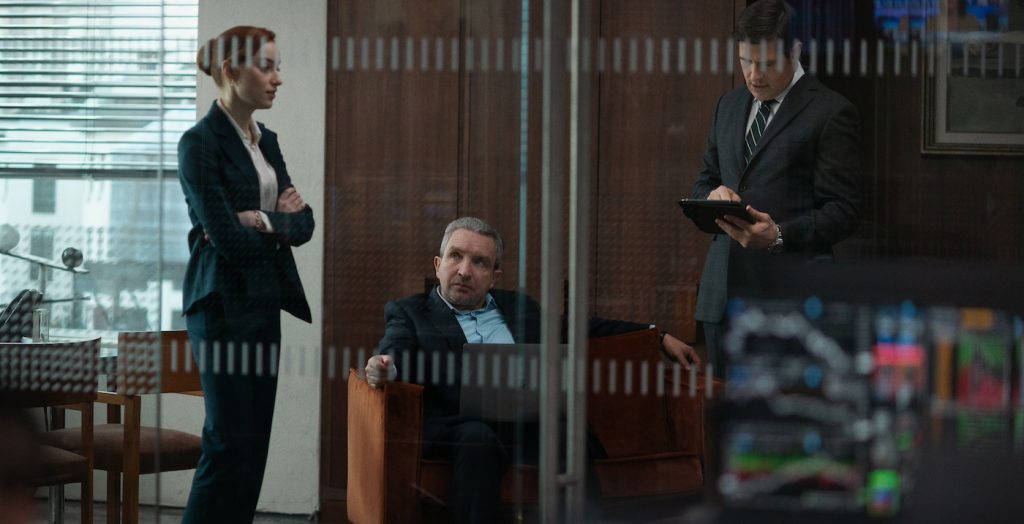
And she absorbs it after some initial shock and keeps pressing on at Crest Capital.
That’s why I had him say it again. The look of shock on her face, like, what did you just call me? And he’s like, yeah, I can say whatever the f**k I want. You don’t like it? Leave. And that’s how it is.
[Spoilers below]
Can you explain how you set up Luke’s spectacular flameout at the office when he attempts to undermine Emily to his final, even more desperate and awful act at home?
In the scene with Campbell when she has to choose how to deal with [Luke’s treachery] and save face at that company because Luke throws her under the bus, Campbell gives her his thirty thousand view of the world, which is this— ‘It doesn’t f**king matter. It’s all about the money. Just move on from it. I don’t care who you kill, I don’t care who you f**k, just do it on your time.’ So she’s sitting on that idea that accountability doesn’t matter, and watching this new woman come in, and Emily’s on the other side of what she’s experienced, this abuse, and she knows everything this young woman is going to go through, that’s what’s in her head when she’s faced with Luke for one final confrontation.
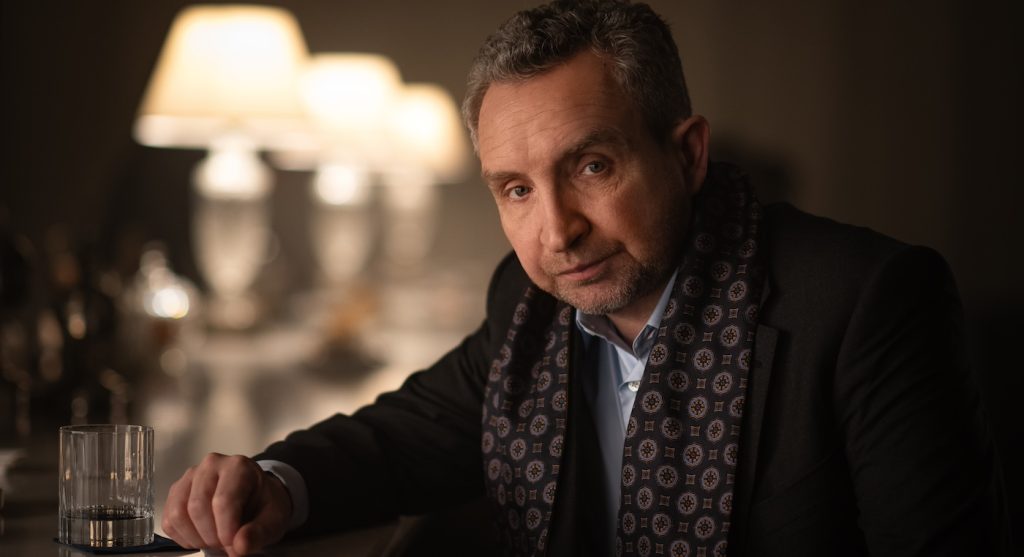
What did you want to bring across in that final confrontation between Emily and Luke?
For me, the ending was always about Emily reclaiming the power that Luke takes away from her. The film always had to escalate to the sexual assault scene in the bathroom because the only way for Luke to reclaim the power in the relationship at that point is through physical dominance. The only way for Emily to reclaim the power again is through physical force as well because this is a man who refuses to be held accountable. So, it had to go to these places for me because I set out to make a thriller about power dynamics on the ugliest level. Sexual assault is not about sex; it’s about power. Then, when it does occur, what’s Emily going to do about it? She tries to confront him on his inability to face who he is. He’s a man who cannot own up to his own weakness and cannot face his own failures, and it causes so much destruction. For me, the last scene is not about female revenge; it’s a scene about holding a man accountable. A man who refuses to be held accountable. The whole movie builds up to the line where Luke finally mutters the words, “I’m nothing.” Once he finally does that, once he’s finally the man who acknowledges his own inferiority, his own weakness, his own failure, that’s the resolution of the film. Ultimately, this is not a film about female empowerment; this is a film about male fragility.
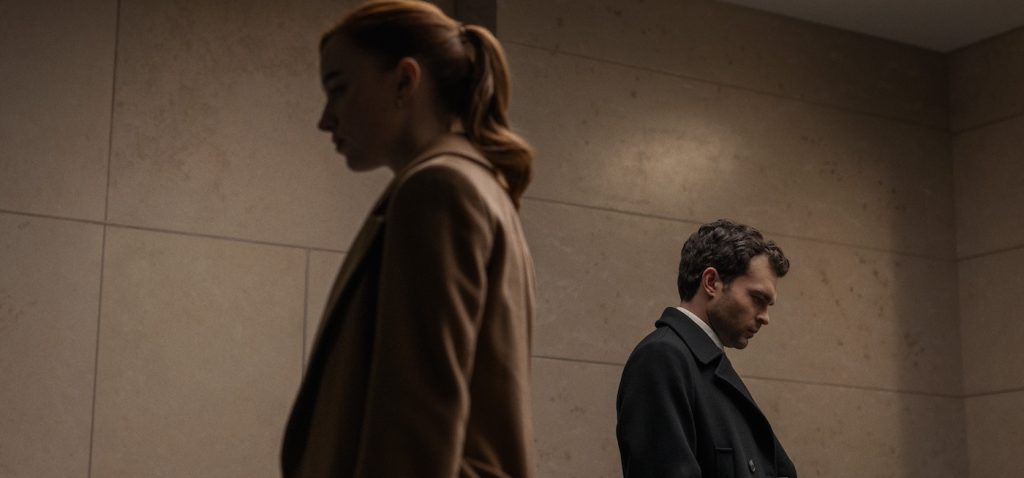
For more on big titles on Netflix, check these out:
“Reptile” Director Grant Singer on His Slithery Mystery Feature With Benicio Del Toro
“May December” Trailer Reveals Natalie Portman and Julianne Moore in Todd Haynes’ Twisty New Film
Featured image: Fair Play. (L to R) Alden Ehrenreich as Luke and Phoebe Dynevor as Emily in Fair Play. Cr. Sergej Radovic / Courtesy of Netflix



